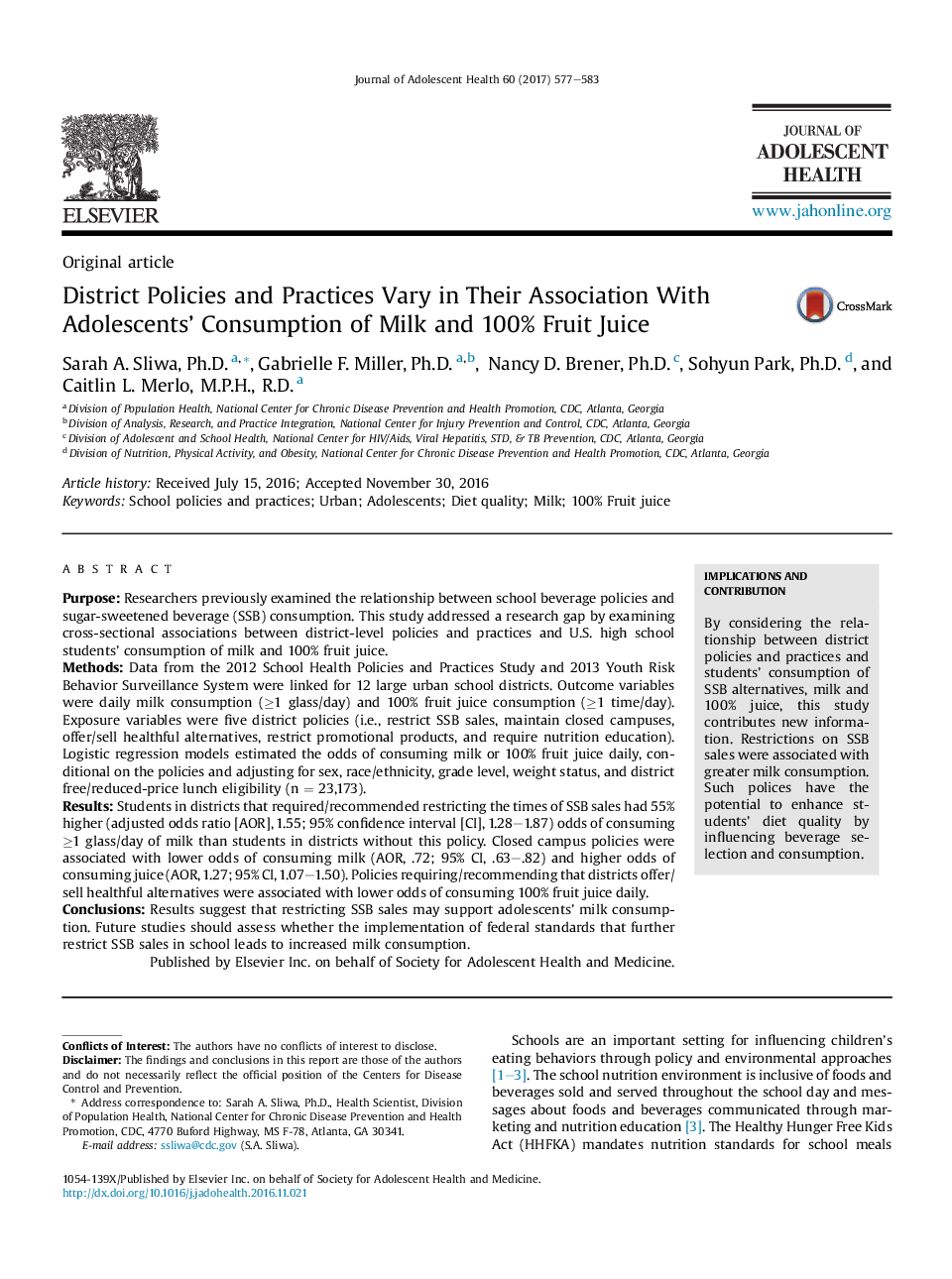| کد مقاله | کد نشریه | سال انتشار | مقاله انگلیسی | نسخه تمام متن |
|---|---|---|---|---|
| 5121303 | 1378294 | 2017 | 7 صفحه PDF | دانلود رایگان |
PurposeResearchers previously examined the relationship between school beverage policies and sugar-sweetened beverage (SSB) consumption. This study addressed a research gap by examining cross-sectional associations between district-level policies and practices and U.S. high school students' consumption of milk and 100% fruit juice.MethodsData from the 2012 School Health Policies and Practices Study and 2013 Youth Risk Behavior Surveillance System were linked for 12 large urban school districts. Outcome variables were daily milk consumption (â¥1 glass/day) and 100% fruit juice consumption (â¥1 time/day). Exposure variables were five district policies (i.e., restrict SSB sales, maintain closed campuses, offer/sell healthful alternatives, restrict promotional products, and require nutrition education). Logistic regression models estimated the odds of consuming milk or 100% fruit juice daily, conditional on the policies and adjusting for sex, race/ethnicity, grade level, weight status, and district free/reduced-price lunch eligibility (n = 23,173).ResultsStudents in districts that required/recommended restricting the times of SSB sales had 55% higher (adjusted odds ratio [AOR], 1.55; 95% confidence interval [CI], 1.28-1.87) odds of consuming â¥1 glass/day of milk than students in districts without this policy. Closed campus policies were associated with lower odds of consuming milk (AOR, .72; 95% CI, .63-.82) and higher odds of consuming juice (AOR, 1.27; 95% CI, 1.07-1.50). Policies requiring/recommending that districts offer/sell healthful alternatives were associated with lower odds of consuming 100% fruit juice daily.ConclusionsResults suggest that restricting SSB sales may support adolescents' milk consumption. Future studies should assess whether the implementation of federal standards that further restrict SSB sales in school leads to increased milk consumption.
Journal: Journal of Adolescent Health - Volume 60, Issue 5, May 2017, Pages 577-583
